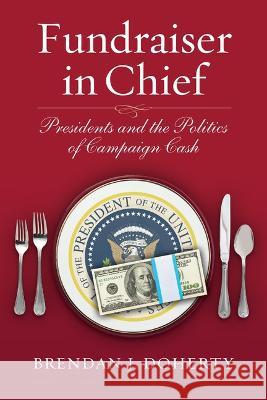Fundraiser in Chief: Presidents and the Politics of Campaign Cash » książka
Fundraiser in Chief: Presidents and the Politics of Campaign Cash
ISBN-13: 9780700635320 / Angielski / Twarda / 2023 / 224 str.
Fundraiser in Chief: Presidents and the Politics of Campaign Cash
ISBN-13: 9780700635320 / Angielski / Twarda / 2023 / 224 str.
(netto: 370,88 VAT: 5%)
Najniższa cena z 30 dni: 388,63
ok. 22 dni roboczych.
Darmowa dostawa!
Recent presidents have responded to the evolving rules of the campaign finance system and the competitive electoral landscape by devoting substantial amounts of their most valuable resource—their time—to fundraising. In the follow-up to his 2012 book, The Rise of the President’s Permanent Campaign, Brendan Doherty argues that presidential fundraising is an underexamined tool of modern presidential leadership and should be viewed as an instrument of presidential power akin to signing statements, executive orders, public speeches, and veto threats. Presidents raise campaign cash for themselves and for their fellow party members in the hope of electoral gains that will reshuffle the governing deck in their favor, but acting as fundraiser in chief sparks a host of controversies.Based on an original dataset of 2,190 presidential fundraisers spanning more than four decades of presidents from Carter to Trump, Fundraiser in Chief is the first book-length work to analyze presidential fundraising in a systematic and comprehensive manner. Doherty draws on an unprecedented amount of empirical evidence to shed light on modern presidents’ fundraising priorities and strategies as they seek to move the country closer to their vision of a more perfect union. Fundraiser in Chief is a study of presidential resource allocation strategy: how much of their scarce time presidents devote to fundraising, for whom they do it, what priorities are illuminated by their efforts, how their fundraising strategies relate to the evolving campaign finance landscape, under what circumstances they fundraise behind closed doors, and the resulting controversies and implications for presidential leadership and the American political system. Doherty offers an argument about the incentives that drive presidents to fundraise so frequently while examining the controversial implications of their extensive efforts to raise campaign cash. He contends that rising campaign costs, limits on contributions to candidates and political parties, the inadequacy of the resources provided by the presidential public funding system, the specter of Super PACs raising funds in unlimited amounts, and fiercely competitive contests to control the White House, Congress, and governors’ offices across the country have all incentivized presidents to embrace their role as fundraiser in chief.











